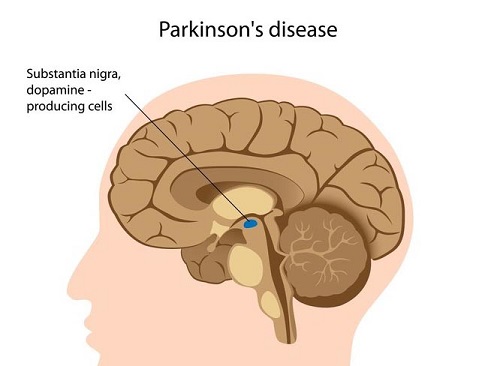New study reveals that Linalool and Geraniol show promise in treating Parkinson's disease
Nikhik Prasad Fact checked by:Thailand Medical News Team Jul 30, 2024 8 months, 1 week, 6 days, 22 hours, 54 minutes ago
In recent research, scientists from the University of Pécs in Hungary have discovered that natural compounds linalool and geraniol may offer new hope for treating
Parkinson’s disease. This news report delves into their findings and how these essential oil components could potentially defend neurons from oxidative stress, inflammation, and iron accumulation.
 New study reveals that Linalool and Geraniol show promise in treating Parkinson's disease
The Study and Its Importance
New study reveals that Linalool and Geraniol show promise in treating Parkinson's disease
The Study and Its Importance
Parkinson’s disease is a debilitating neurological disorder affecting millions globally. The research team utilized in vitro Parkinson’s models to investigate the neuroprotective effects of linalool and geraniol. Both compounds are major components of lavender and geranium essential oils, respectively.
Understanding Parkinson's Disease
Parkinson’s disease is characterized by the degeneration of dopaminergic neurons in the substantia nigra region of the brain. This degeneration leads to symptoms like tremors, rigidity, bradykinesia, and non-motor symptoms such as insomnia and depression. Various factors, including oxidative stress and neuroinflammation, contribute to the progression of this disease.
Key Findings of the Study
The researchers conducted experiments using SH-SY5Y neuroblastoma cells treated with neurotoxins rotenone and 6-hydroxydopamine (6-OHDA) to simulate Parkinson’s disease conditions. The study's significant findings include:
-Reduction of Reactive Oxygen Species (ROS): Both linalool and geraniol were found to significantly reduce the levels of ROS, which are markers of oxidative stress. Geraniol, in particular, showed more efficiency in decreasing ROS levels compared to the traditional Parkinson’s drug rasagiline.
-Antioxidant Capacity: The study measured the small-molecule antioxidant capacity (SMAC) and protein antioxidant capacity (PAC) of treated cells. While both essential oils enhanced the SMAC and PAC, geraniol exhibited a stronger effect, suggesting its superior role in combating oxidative stress.
-Anti-inflammatory Effects: Linalool and geraniol effectively reduced the secretion of pro-inflammatory cytokines IL-6, IL-8, and IL-1β in the treated cells. This anti-inflammatory property is crucial as chronic inflammation is a significant contributor to neurodegeneration in Parkinson’s disease.
-Iron Regulation: The study revealed that both compounds modulated iron-related genes, impacting iron accumulation in cells. Iron dysregulation is a known factor in Parkinson’s disease progression, making this finding particularly noteworthy. Linalool and geraniol altered the expression of genes like transferrin receptor 1 and heme-oxygenase-1, helping regulate intracellular iron levels.
Detailed Study Results
Reactive Oxygen Species Production
The researchers measured ROS production in SH-SY5Y cells treated with rotenone and 6-OHDA, both with and without additional iron supplementation. The findings showed that both linalool and geraniol reduced ROS levels significantly, with geraniol outperforming linalool in some scenarios.
Antioxidant Capacity
The study analyzed the effects of linalool and geraniol on the antioxidant capacities of cells. Both compounds were able to increase the small-molecule and protein antioxidant capacities, thus enhancing the cells' ability to counteract oxidative stress.
Inflammation Reduction
The secretion of inflammatory cytokines IL-6, IL-1β, and IL-8 was significantly reduced by linalool and geraniol treatments. This reduction in pro-inflammatory markers suggests that these compounds can potentially mitigate inflammation-induced neurodegeneration.
Iron Accumulation and Gene Expression
Linalool and geraniol influenced the expression of iron-related genes, thereby regulating intracellular iron levels. They decreased iron accumulation in Parkinson’s models, highlighting their potential in managing iron-induced oxidative damage.
Implications for Parkinson’s Therapy
The study's findings suggest that linalool and geraniol could serve as alternative therapies for Parkinson’s disease, offering a natural approach to managing oxidative stress, inflammation, and iron dysregulation. These compounds' ability to cross the blood-brain barrier further enhances their potential as neuroprotective agents.
Conclusion
This groundbreaking research opens new avenues for Parkinson’s disease treatment using natural compounds. By reducing oxidative stress, inflammation, and regulating iron metabolism, linalool and geraniol show promise as complementary therapies.
The study findings were published in the peer-reviewed journal: Antioxidants.
https://www.mdpi.com/2076-3921/13/8/917
For the latest research on
Parkinson’s Disease, keep on logging to Thailand Medical News.
Read Also:
https://www.thailandmedical.news/news/herbs-and-phytochemicals-phlorotannin-from-ecklonia-cava-is-a-potential-ally-in-the-fight-against-parkinson-s
https://www.thailandmedical.news/news/how-zinc-and-carnosine-could-hold-the-key-to-fighting-dementia-and-parkinson-s-disease 